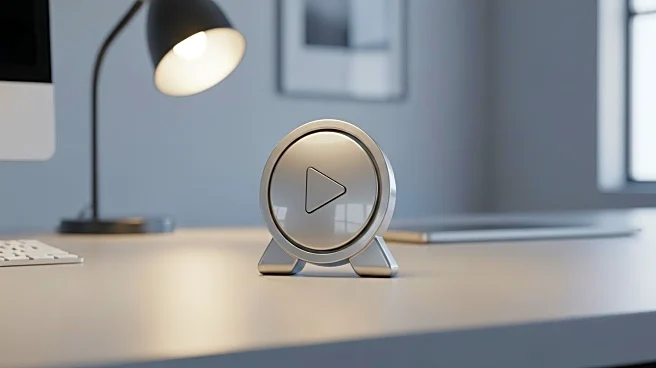What is the story about?
What's Happening?
YouTube has announced a new policy allowing creators whose channels were previously terminated to request new accounts. This initiative, described as a 'pilot,' comes in the wake of a subpoena from Rep. Jim Jordan (R-OH) to Alphabet, YouTube's parent company, investigating potential coercion by the Biden-Harris administration to censor speech. Alphabet's legal counsel, Daniel F. Donovan, indicated that creators terminated for violations of COVID-19 and election integrity policies, which are no longer in effect, may be eligible to return. YouTube emphasizes its commitment to free expression and acknowledges the role of conservative voices in civic discourse. The platform had previously enforced strict policies during the COVID-19 pandemic and post-January 6 riots, which led to the termination of several accounts, including that of President Trump. Creators seeking reinstatement must wait one year after termination and can appeal during this period if they believe the decision was unjust.
Why It's Important?
This policy shift by YouTube reflects broader changes in how social media platforms manage content moderation and free speech. By allowing terminated creators to return, YouTube is addressing concerns about censorship and the balance between community guidelines and free expression. This move could impact the platform's relationship with conservative creators, who have often criticized tech companies for perceived bias. The decision may also influence public discourse, as previously banned voices regain access to large audiences. Additionally, it highlights the evolving nature of content moderation policies, especially those related to misinformation and political content, which have been contentious issues in recent years.
What's Next?
As YouTube implements this pilot program, it will likely face scrutiny from various stakeholders, including political leaders, advocacy groups, and the creators themselves. The platform will need to navigate potential backlash from those who view the reinstatement of certain creators as a step back in combating misinformation. YouTube's criteria for evaluating requests, such as the severity of past violations and potential harm to the community, will be crucial in determining the success and acceptance of this initiative. The company may also need to refine its policies further to address ongoing concerns about content moderation and free speech.
Beyond the Headlines
This development raises questions about the ethical responsibilities of social media platforms in moderating content and the potential long-term effects on public discourse. The reinstatement of creators previously banned for misinformation could challenge efforts to maintain accurate information online. It also underscores the tension between platform policies and political pressures, as companies like YouTube balance regulatory compliance with user demands for free expression. The decision may set a precedent for other platforms facing similar challenges in content moderation.















